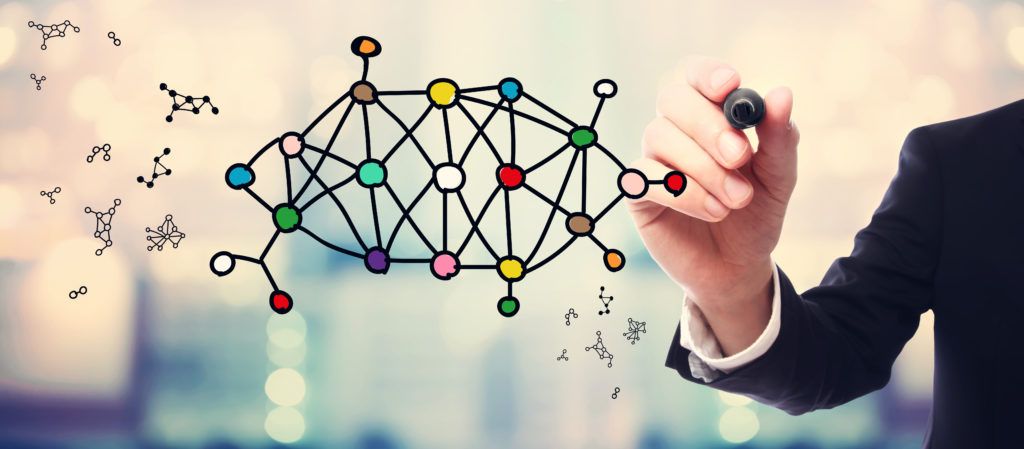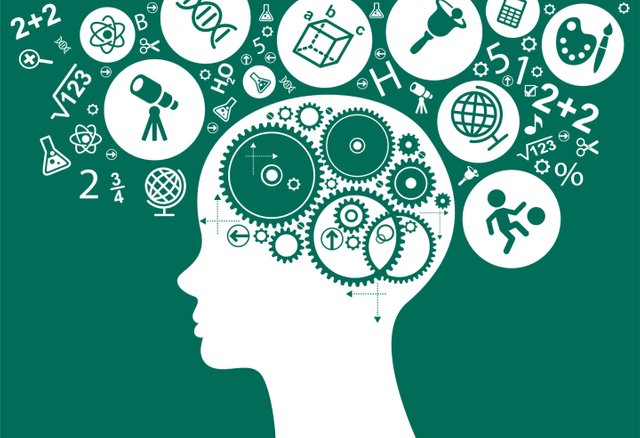Learning Effectively
We already know the importance of learning in our lives. I will still emphasize it a bit. On steem, we are always looking for some useful posts, and for some good information. In my case, I was learning Physics and Spanish when I found Steem, I now have a book on Bitcoin and cryptocurrency. So, we just keep learning, every day of our lives, looking for something important, anything that would make our lives easier, or better.

Now let's talk about how to learn some knowledge effectively. And I am talking only about knowledge here because behaviours and habits can be learnt as well. By effective, I mean in a way that you get what you want from your source of knowledge, and be able to retain and apply it for a long time, especially since we invest a considerable part of our lives in learning. A simple graduation takes minimum three years. You get your masters two years later and there is a presidential election, it's every five years in India. You can also compare it with a world cup series. So, we must ensure that the time we spend in learning is worth it. Governments and world champions's records change while we are in universities.
In this post, we shall talk about some tricks for retaining the information for a long time.
First thing you need is, of course a healthy brain.

Preparations : Make sure your brain gets adequate blood supply. Why am I saying this? Because our brain's just don't get the blood supply they deserve, and it's even less if we don't exercise. The reason behind this is, our heart has to pump blood against the gravity so it could reach the brain.
You can always try any yoga posture where your head is below the heart for a minute, and get your back straight again. You can feel the blood going back downwards, and the heavy head getting lighter. Not our fault, it's the evolution. We got our hearts earlier, and highly evolved brains much later. I'm giving links for some yoga here.
https://www.yogajournal.com/poses/standing-forward-bend
https://www.yogajournal.com/poses/wide-legged-forward-bend
https://www.yogajournal.com/poses/legs-up-the-wall-pose
https://www.yogajournal.com/poses/big-toe-pose
http://www.yogapoint.com/yoga-poses/padmasana-yogamudra-type-1.htm
http://www.yogapoint.com/yoga-poses/padmasana-yogamudra-type-2.htm
http://www.yogapoint.com/yoga-poses/padmasana-yogamudra-type-2.htm
If our heart isn't beating good, our brains get tired easily. This also results in hair loss. You can easily understand this from the fact that the back of our head's don't lose hair because blood supply is easily available there compared to the top part of head. This means, regular cardio aids in the functioning of our brains, and hence in managing stress, plus in controlling hair loss.
The blood supply matters to every part of our body. It matter's for our brain because the neurons need the oxygen from blood. And the neuron pathways that we form by learning new things would be difficult to form if the neurons present in the brain aren't numerous enough, or don’t last long enough to help. This is the reason why we easily fall for fatigue, stress and our very usual coffee breaks while studying.
Bottom line, work on cardio and/or a healthy yoga posture where the head should stay below the heart almost every day.
This was our first topic today, the second is, Effective Association (or simply linking) of ideas together in order to better understand them.
Basically, when say we understand some idea (or concept), we mean we have associated or linked it to the ideas we already had, or which we already understood well. For example we know what steem is if we link it to our previous knowledge about bitcoin and cryptocurrency. Or we know all about electric current and voltage, if we already know and linked it to the idea of electrons. This means, all learning is done by association or linking.
On a biological scale, we form new neuron pathways which link this new information to previously stored information in our brains every time we try or learn something new. And we strengthen the already formed neuron pathways if we repeat what we have already learned, thus beginning to form a habit.
There are many ways to go around memorization, but I'll divide all of them into two categories, just for keeping things simple. I'll call them the easy memorization tricks and the direct approach. You can get an idea of what I'm saying already. And they both have their own advantages and disadvantages. Both these ways should be applied in places where they are most effective. This is what we will be talking about.
The easy ways of memorizing and remembering things are readily available on the Internet. You can google memorization techniques and you will find all such websites. I won't cover them here, just the idea of what they provide you.
Basically you get techniques to memorize a list of things, or a sequence of ideas which are (or appear to be) random in nature. For example, a list of random words, a pack of well shuffled cards, or a paragraph with difficult words, etc. These are random, like the pack of cards, or appear random, as in the paragraph. These techniques usually turn the given difficult idea into a different, funny, easy idea that you can remember easily. For example, we can use a music tune for words in a paragraph, or a funny image for each random item in a list, etc.
On the other hand the direct ways of memorization is what we need to remember things the way they are. This method is important if we have more information coming our way which will be based on the information we are learning right now. As in the idea of bitcoin and cryptocurrency expands into many ideas I haven't yet learnt. Another example, the concept of atoms and electrons leads us from current and voltage to entire knowledge of electricity.
Biology again, the comparison here is about forming more neural links by easy methods or strong neural links using direct approach.
Which way to go? First, using easy tricks, though effective, may distort our understanding of original ideas a bit. It may be good for exams, it may not always be useful in the long run. Second, it may get messier with new different concepts based on what you have already learned, adding up as you proceed, thus being ineffective. Easy tricks are useful if used carefully.
That's it, since easy tricks are all over google, now I'll talk about some efficient direct approaches that may be we all already know.
- Learn using as many senses as possible, read (eyes), write (body movement), and listen (ears). Try tasting and sniffing as well if required. Don’t bite your pens, lol. Although some say it helps.
- Reading slowly is effective as well. It forms more neural links as well as strengthens them at the same time. So you can try giving more of your time to every word you read, only if it's that important. It’s very effective while learning a new language.
Take Care.
This post recieved an upvote from minnowpond. If you would like to recieve upvotes from minnowpond on all your posts, simply FOLLOW @minnowpond
Congratulations @hemanth23! You have completed some achievement on Steemit and have been rewarded with new badge(s) :
Click on any badge to view your own Board of Honor on SteemitBoard.
For more information about SteemitBoard, click here
If you no longer want to receive notifications, reply to this comment with the word
STOPCongratulations @hemanth23! You have completed some achievement on Steemit and have been rewarded with new badge(s) :
Click on any badge to view your own Board of Honor on SteemitBoard.
For more information about SteemitBoard, click here
If you no longer want to receive notifications, reply to this comment with the word
STOP